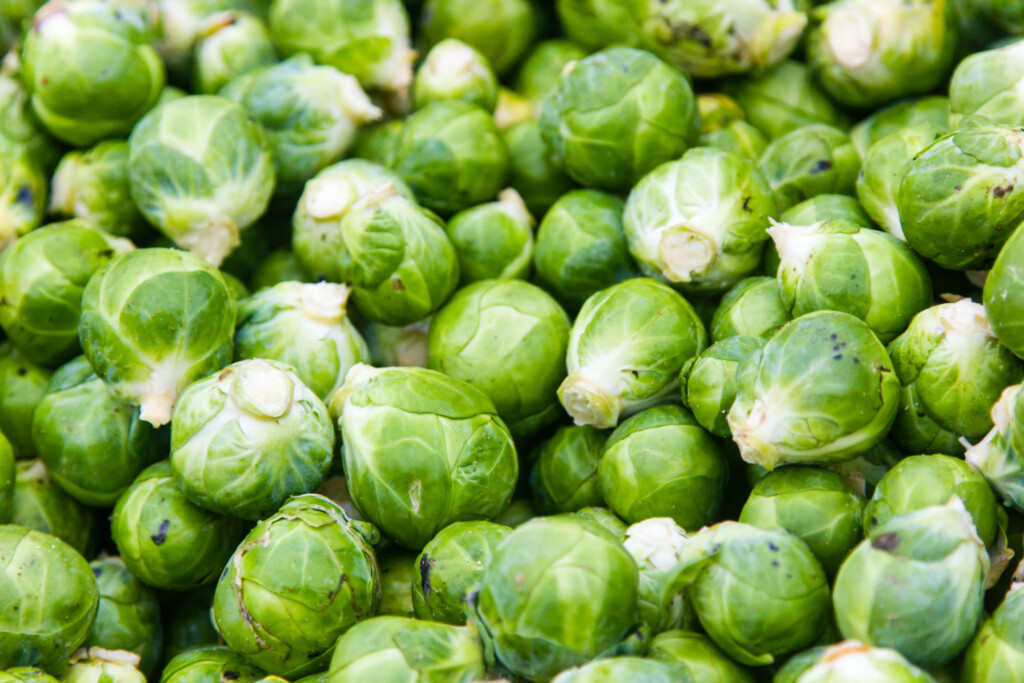Food of the Month – Brussels Sprouts

Brussels sprouts were named after Brussels, Belgium, where it was believed they were first introduced in the 16th century. Brussels sprouts are sometimes called mini cabbages. They fall into the Brassica oleracea family of cruciferous vegetables that includes broccoli, cauliflower, cabbage, kale and collard greens.
Storage Tips: Before storing, remove any brown or yellow leaves to prevent rotting. Keep Brussels sprouts in the crisper drawer of the refrigerator. If possible, keep the Brussels sprouts whole while storing them. Cut Brussels sprouts may dry out. If bought on the stalk, it can be stored like cut flowers by trimming the end and putting them in a small mason jar in the refrigerator.
Nutrition: Brussels sprouts are a rich source of fiber, vitamins C and K, which can support overall health. They may also reduce inflammation and the risk of diabetes. A person should not eat Brussels sprouts if they have irritable bowel syndrome (IBS). The fiber content might worsen IBS symptoms. 1/2 cup of cooked Brussels sprouts (boiled and unsalted) gives:
- 28 calories
- 5.5g of carbohydrates
- 2g of fiber
- 2g of protein
- 0g of total fat
Cooking: Brussels sprouts can taste a little bitter because they contain sulfur in them. Roasting them by oven can reduce the harsh sulfur taste and bring out their sweet, nutty flavor.
- Before cooking, rinse and scrub Brussels sprouts with cold water. Remove leaves that look damaged, as well as the stem.
- The best way to enjoy them is oven-roasting them. Slice or quarter Brussels sprouts and toss in extra virgin olive oil, sea salt and black pepper. Cook for 30-40 minutes at 400℉ until the outer leaves are golden and slightly crisp.
Other ways to enjoy:
- add them to stir-fires, salads and soups
- skewer and grill the vegetable whole
Fun Facts:
- There are over 110 different varieties of Brussels sprouts.
- A half cup of Brussels sprouts contains more vitamin C than an orange.
- Brussels sprouts taste sweeter after being exposed to frost. The cold converts some of their starches into sugar, enhancing their flavor.
- Brussels sprouts grow on thick stalks and can be harvested individually or bought on the stalk for freshness.
Sauteed Shredded Brussels Sprouts with Balsamic
Published on February 9, 2025
